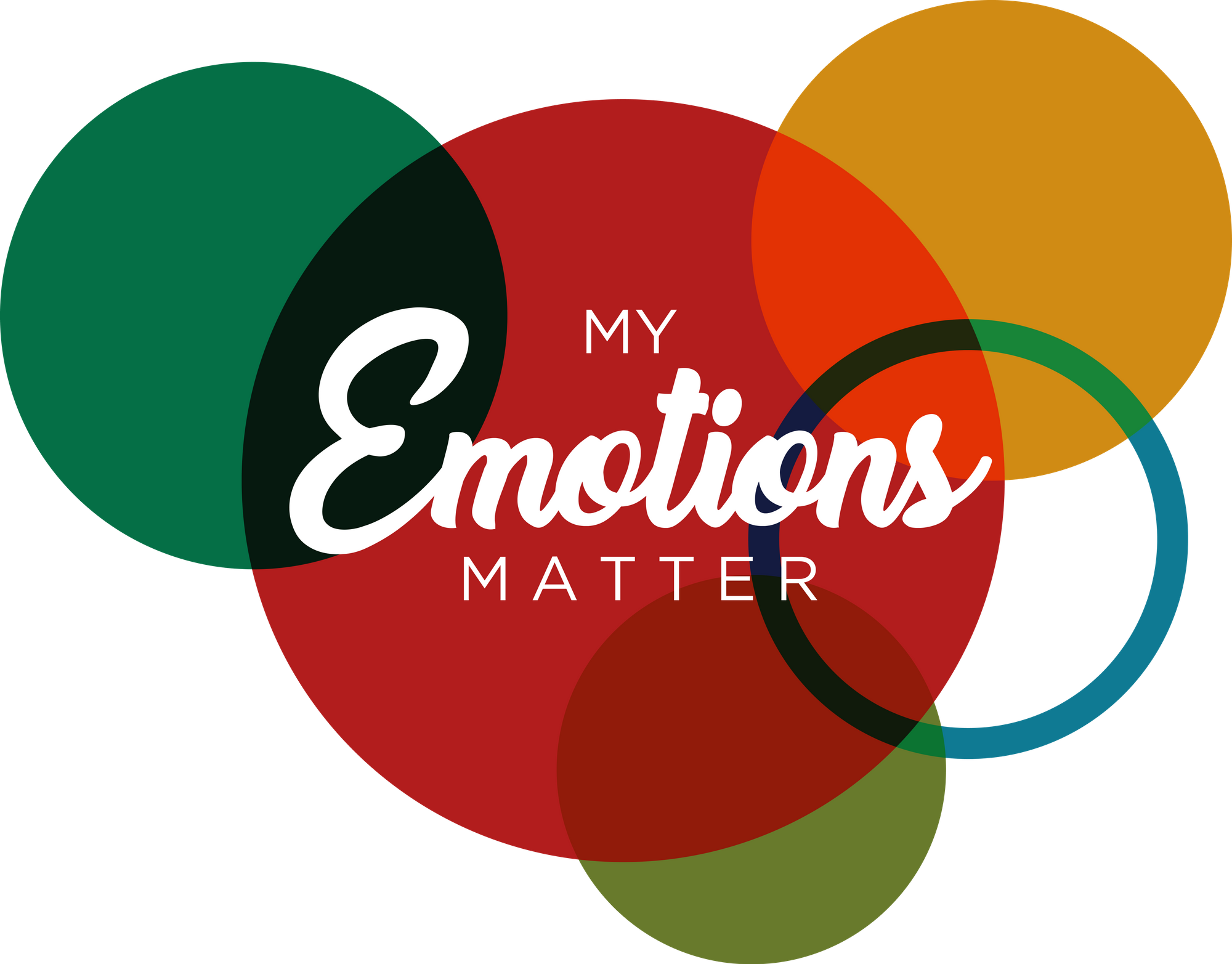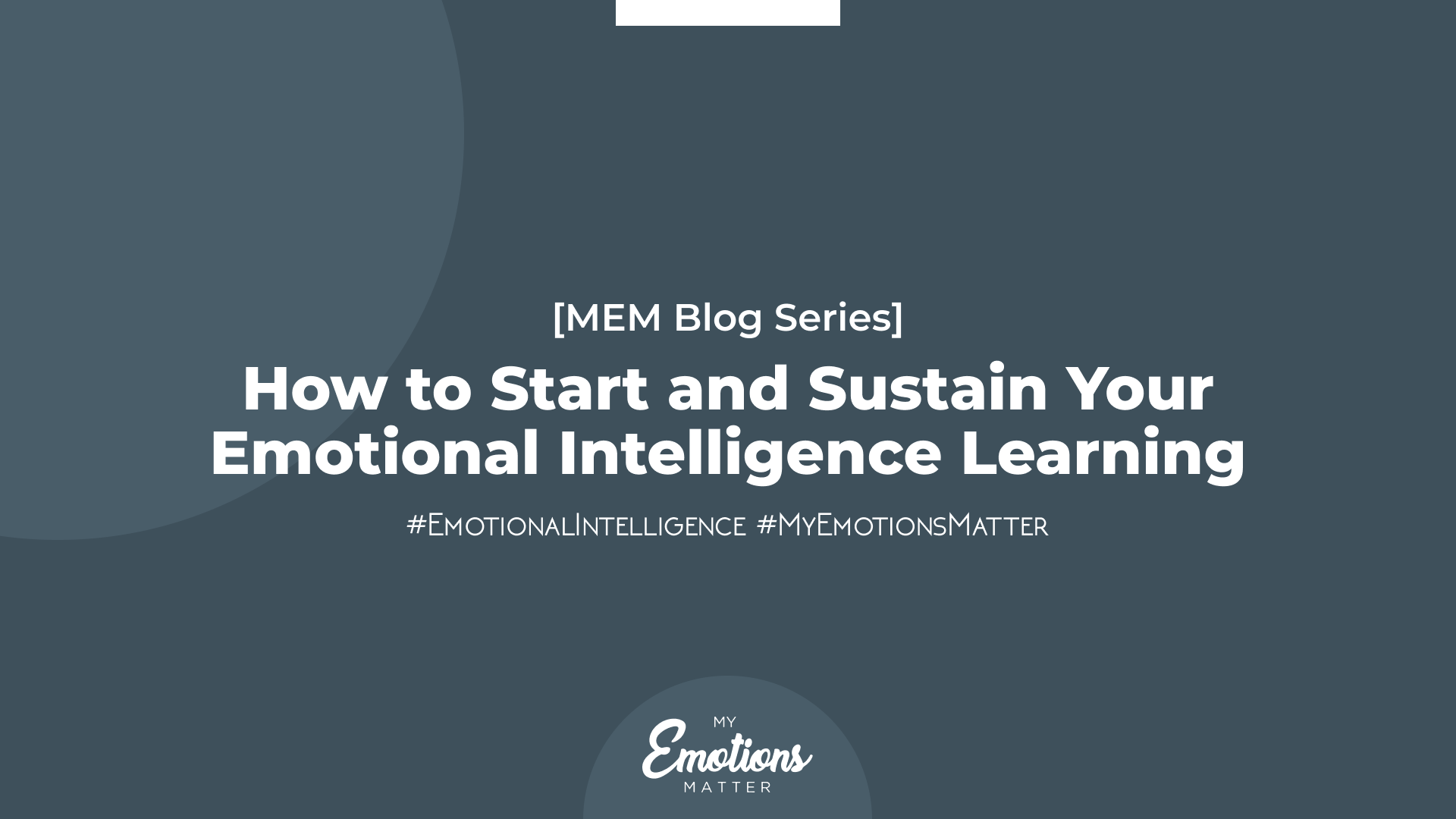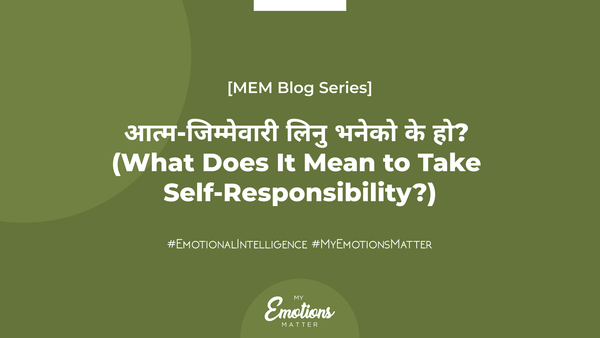How to Start and Sustain Your Emotional Intelligence Learning
You’ve taken the Emotional Intelligence course. You’ve seen that it can be helpful for personal growth and wellbeing, communication and relationships. But how do you even start or sustain your practice?As someone whose journey with Emotional Intelligence began with joining My Emotions Matter earlier this year, I can empathize with the concerns you may be experiencing. I’ve come to realize that many of the challenges I faced through my exploration of EI were not unique to me but anyone beginning with this path could resonate. These challenges mostly highlight the interval between understanding the concept and implementing/sustaining it in our daily lives. Thus, in this blog, I’d like to share some of the most common hurdles people face while starting to practice EI, along with insights and small actionable steps that can be helpful in overcoming them.
The skill of separating stimulus and stories
The challenge: Oftentimes we react without realizing that we are adding our interpretations (stories) to what is happening (stimulus). Being aware of our tendency to make stories helps us see how our needs influence these narratives. It can be frustrating to realize how we keep doing it even though we are aware that we are reacting because of the stories we have made in our minds.
What you can do: Recognize that being aware of this pattern itself is a step in the right direction. Whenever you realize you’re feeling some emotions in you or realize you’re making stories/judgements on anything, take some time out to reflect and ask yourself, “Was it a fact or did I make a story? What needs of mine were fulfilled or unfulfilled?” You can do this even for the positive stories you create. Ultimately, our goal is to reconnect with our needs instead of getting stuck in judgments/stories - either positive or negative.
The skill of naming feelings and needs
The challenge: While identifying feelings and needs itself was a challenging aspect in life, now in this journey, we have to be able to name them? This thought itself can feel discouraging. However, what’s more discouraging is not being able to understand ourselves and communicate effectively about it with others, leading to irritation and disconnection.
What you can do: Recognize that learning to label our emotions and connecting them to our needs is an empowered state because it gives us greater clarity and deepens relationships. Ask yourself: What’s Good about this? What’s Garro about this? In both the questions, link the answer to your Goal. This helps you see that your feelings are coming from your needs. Another helpful tip is to keep a picture of feelings and needs on your phone wallpaper or if that’s too much, in your gallery. This way, whenever you struggle to name your emotions or needs, you can easily refer to it as a reminder.
The skill of taking self-responsibility
The challenge: It’s difficult to say “No” without being selfish, or is it? It surely is challenging to find the right balance between empathizing with others while honoring our own needs. Often, we might feel that prioritizing other’s needs means we have to neglect our own. However, true emotional intelligence helps you recognize that caring for ourselves can strengthen or even enhance our ability to care for others. Learning this skill is a key to building compassionate and sustainable relationships.
What you can do: Acknowledge that every action, feeling, stories/judgements, whether your own or someone else's, are driven by needs. Everything we do is to fulfill our own needs, just as others do the same. Avoid phrases like "I did this for you," "This happened because of you," or "I am feeling this way because you did that." Instead, focus on taking responsibility for your own needs and find ways to meet them while respecting the same about the others.
The skill of making action requests
The challenge: I started noticing a common pattern of people (including myself) to share our needs in a vague manner without specifying what actions we’d like to see. Since everyone has their own way of meeting needs, they might take actions that don’t actually address the intended request. For example, saying, “I need support” leaves the listener unsure about how to help. They might try to meet our needs in a way that aligns with their perspective, but not ours.
What you can do: Before asking for something, check if you can be help the other person understand exactly what you are requesting using PLATO: Person, Location, Action, Time and Object. These five elements are important to specify so that the other person doesn't assume what we are requesting. For example, instead of saying, “I need support”, we could try saying, “Could you help me organize the materials for my session tomorrow morning in the office at 9:00 am?”. This statement makes it clear how exactly the other person can contribute with their actions to help you meet your need for 'support'. We can use the same approach to hear clear requests from others.
In conclusion, I can see clearly now how much our upbringing shapes us to judge others, blame, assume, and create stories in our minds and not take self-responsibility for our needs. While it can be very challenging to break deeply rooted habits, it is not about making overnight changes. Consistently daily practices like the ones mentioned above can compound overtime to greater personal growth and wellbeing, communication and relationships.




